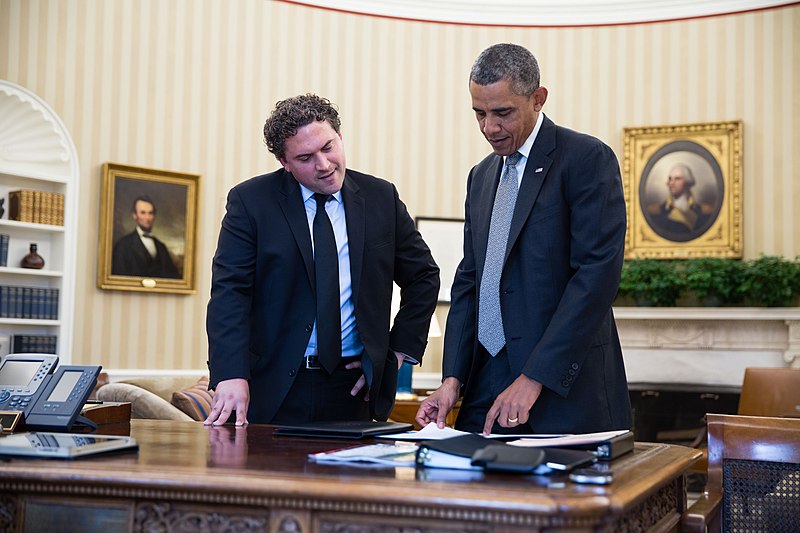Of Poets and Speechwriters
July 22, 2020
While there are many “obvious” differences between the two occupations, both involve using language in similar ways.
Review of: Dispatches from the Republic of Letters – 50 Years of the Neustadt International Prize for Literature, edited by Daniel Simon (release date: Oct 20, 2020)
Over a long career as an academic and philosopher, Kendall Walton has explored connections between subjects that, at first glance, seem to have little to do with one another. In a book published in 2015, for example, Walton examined the similarities between poets and speechwriters. He observed how, while there are many “obvious” differences between the two occupations, both involve using language in similar ways.
“It is not unlikely that poets sometimes have, as at least part of their purposes in composing a poem, the objective of making words available for use by their readers,” Walton wrote. That is, to provide readers expressions that help “to articulate thoughts, to express to ourselves opinions, feelings, attitudes” and so on. (This line of thinking may recall, for some, Percy Shelley’s essay A Defence of Poetry.) Walton drew a connection between this and a speechwriter’s focus, when drafting remarks for a client, on producing “a text for use by someone else,” using words and expression that will, in the speechwriter’s view, help get the client’s views across to an audience.
Walton’s words came to this reviewer’s mind while reading an advance copy of the soon-to-be released book Dispatches from the Republic of Letters. Dispatches celebrates the first 50 years of the Neustadt International Prize for Literature – a prize dedicated to recognizing poets, novelists and playwrights from around the world for literary excellence. Regard for the Neustadt runs high enough that it has been called the “American Nobel” prize.
The Neustadt prize is awarded every two years to an individual based on the decision of a jury of distinguished writers. The process culminates in a ceremony at the University of Oklahoma, where winners are formally recognized and invited to make an acceptance speech. The university co-sponsors the award with the publication World Literature Today.
Dispatches from the Republic of Letters compiles a series of essays and speeches profiling 25 Neustadt winners, accompanied by the text of each winner’s remarks at the biennial University of Oklahoma celebration.
Because Neustadt winners have come from all regions of the globe, this book takes readers through a kind of Marco Polo experience, an around-the-world journey in 350 pages. Dispatches is a perfect way to lift ourselves out of the monotony and restrictions of the current COVID lockdowns. With this book in hand, you can roam the world, across fertile realms of imagination, without leaving your favorite chair.
While the winners may write in many different languages, the book (like the Neustadt award itself) keeps the focus on how poetry and literature can bring the human family together – a theme that comes up again and again in the acceptance speeches reproduced here.
Usually short, but full of thought-provoking reflections on poetry (or fiction) as an art form and on the use of language, the more of the speeches I read, the more I came to the view that Kendall Walton is likely on to something. Differences aside, there are some commonalities between poets and speechwriters. We may not be brothers and sisters exactly, but we might at least be cousins, united by the continuing need to try to find those elusive right words, put them in the right sequence and through those words communicate ideas.
Following below are some key excerpts of note from the winners’ speeches, of interest to anyone who enjoys the study of language and literature:
“There are words that reveal and others that conceal and still others that steal our sleep. Words are often empty, and we know not what to do with them, and they make us want to throw them to the floor and stomp on them to see what emerges.” – Claribel Alegria
[NOTE: Alegria was a Latin American poet and novelist, not a speechwriter – but what speechwriter hasn’t wanted to at least once stomp on a draft?]
“Time brings about new things, good and bad; we must ascertain them. Time kills people and civilizations; we must save them, to remember them in poetry. We understand that the ongoing war between imagination and time (alas, a war that will never be won) cannot end, that we cannot turn, all of us, into historians of poetry and content ourselves with reading old poets.” – Adam Zagajewski
“It is said that art brings nations closer together, since through art they come to know each other. Many work toward this end. I believe that it is much more important for art to bring a man closer to himself. If a man knows one person – himself – he is closer to others than if he knows many people by name, including himself.” – Paavo Haavikko
“In the process [of writing], what must be spoken meets what cannot be said. Each word is a catalyst, requiring the writer to break out forcefully from another story, from the primitive camp where history, society, and politics converge, to touch upon that ‘what’ and that ‘who.’ At that touch, one finds the unlimited boundaries of man, concealed by words.” – Duo Duo



